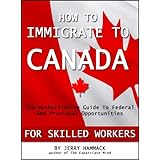 |
| Team Manitoba is kicking a** and taking names in this year's Scotties Tournament of Hearts Curling Championship thanks in part to Kaitlyn Lawes |
Curling is a sport in which players slide stones across a sheet of ice towards a target area which is segmented into four rings. It is related to bowls, boule and shuffleboard. Two teams, each of four players, take turns sliding heavy, polished granite stones, also called "rocks", across the ice curling sheet towards the house, a circular target marked on the ice.[2] Each team has eight stones. The purpose is to accumulate the highest score for a game; points are scored for the stones resting closest to the centre of the house at the conclusion of each end, which is completed when both teams have thrown all of their stones. A game may consist of ten or eight ends.
The Scotties tournament highlights the best women's players in the sport and they are a blast to watch. Give your Canadian cultural awareness score a boost by learning about this wonderful sport. It's the next best thing to hockey!




